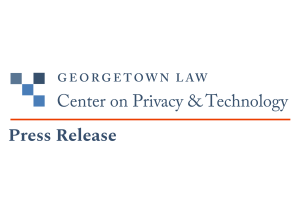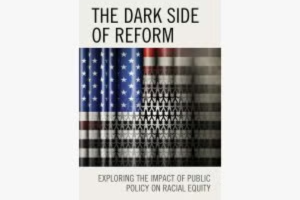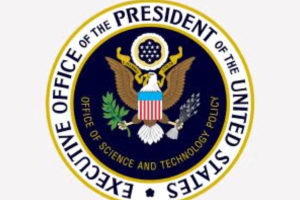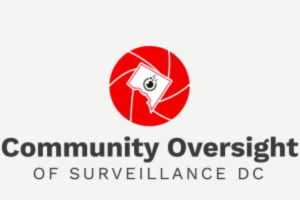Our Work
Founded in 2014, the Center on Privacy & Technology is a leader at the intersection of privacy, surveillance, and civil rights.
Latest Work

Executive Director Emily Tucker Named a 2021 Soros Justice Fellow
Associate Jameson Spivack spoke about face recognition policy and privacy implications as part of the Tech Institute's "Tech Ideas Lunches" series open to Georgetown Law students, faculty, and staff.

Emily Tucker Named New Executive Director of the Privacy Center
In February 2022, the Privacy Center welcomed as its new Executive Director Emily Tucker. She previously served as the Center's Director of Research & Advocacy and as an Adjunct Professor of Law. Read Emily's full bio.

Chapter in The Dark Side of Reform
Executive Director Emily Tucker's chapter, "Four Racial Justice Principles for Policy Response to Carceral Technology," was published in The Dark Side of Reform by Lexington Books. The book addresses the development of social policies with the potential to advance racial equity and the implications of such policy proposals.

Advocacy for DC Community Control Over Police Surveillance Model Bill
Associate Cynthia Khoo filed comments in response to the Office of Science and Technology Policy's Notice of Request for Information on Public and Private Sector Uses of Biometric Technologies. The Center's submission focused on biometric surveillance of low-wage workers, and highlighted the importance of situating biometric surveillance technologies in their full historical context through a racial justice and socioeconomic justice lens.

Advocacy for DC Community Control Over Police Surveillance Model Bill
The Community Control Over Police Surveillance Model Bill (CCOPS) was a bill supported by the Community Oversight of Surveillance coalition that would require DC entities to obtain Council approval before acquiring new surveillance technology and entities would be required to report why they wanted to use the technology and the impact it would have on civil rights and liberties. The Center on Privacy and Technology was a client of the Communications and Technology Law Clinic and asked the clinic to advocate on our behalf at coalition meetings about CCOPS.

“Stopping DHS Domestic Surveillance: An Action Plan for the Biden Administration” blog
Senior Associate Harrison Rudolph published a blog detailing how President Biden should dismantle the surveillance agency the Department of Homeland Security has become under President Trump. Read the whole blog here.

Faculty Advisor Laura Moy Quoted in The Markup
Faculty advisor Laura Moy was quoted in an article by The Markup about the Stop Discrimination in Algorithms Act. “You can’t just plead ignorance,” said Laura Moy, director of Georgetown Law’s Communications and Technology Law Clinic, which helped research and draft the bill. “You have to go out and proactively find out whether or not there is discrimination and then you have to tell us what you’re doing to address it.”

Stop Discrimination Algorithms Act Introduced
The Center celebrated D.C. Attorney General Karl Racine's introduction of of the Stop Discrimination by Algorithms Act (SDAA). The bill, which would prohibit businesses from using algorithms to discriminate on the basis of protected characteristics like race, gender, national origin and sexual orientation, was based on a proposal drafted by Georgetown Law’s own students in Professor Laura Moy’s Communications and Technology Law Clinic (CTLC). Professor Moy's clinic, the Privacy Center, and Color Of Change worked closely with the Attorney General's office to develop the legislation that provides 21st-century civil rights protections. The bill's launch was covered by NPR and DCist with quotes from Center associate Cynthia Khoo.

First-of-Its-Kind Bill Introduced in D.C. to Stop Discrimination in Automated Decision-Making Tools
D.C. Attorney General Karl A. Racine introduced the Stop Discrimination by Algorithms Act (SDAA), which seeks to prohibit the use of biased or discriminatory algorithms to inform decisions about housing, employment, education, healthcare, and other important services. This bill was the result of a partnership between the Privacy Center, the Georgetown Law Communications & Technology Law Clinic, Color of Change, and the D.C. Office of the Attorney General. Read the full press release.

Cynthia Khoo Quoted in an Article Published by the Office of the Privacy Commissioner of Canada
Cynthia Khoo was quoted in an article published by the Office of the Privacy Commissioner of Canada about her work on the Installing Fear project at Citizen Lab.
